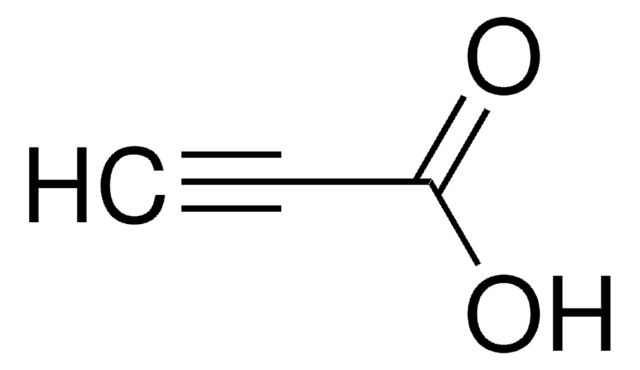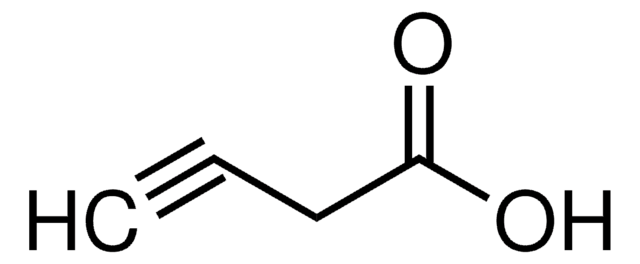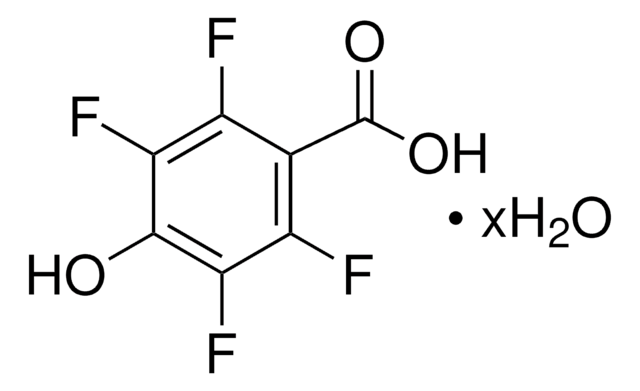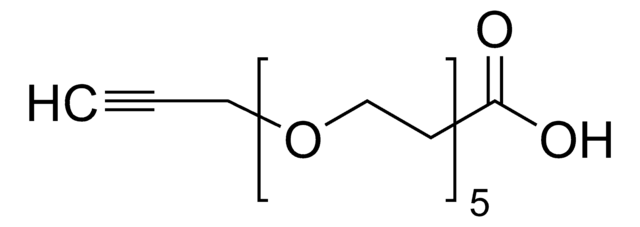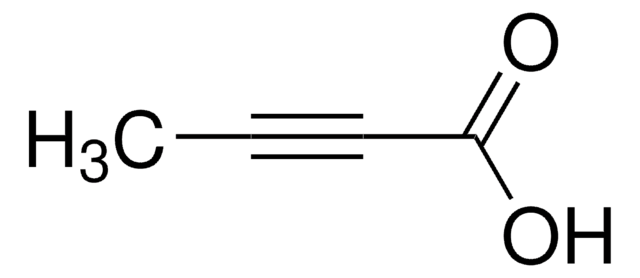442879
6-Heptynoic acid
90%
About This Item
Productos recomendados
Nivel de calidad
Análisis
90%
índice de refracción
n20/D 1.451 (lit.)
bp
93-94 °C/1 mmHg (lit.)
densidad
0.997 g/mL at 25 °C (lit.)
cadena SMILES
OC(=O)CCCCC#C
InChI
1S/C7H10O2/c1-2-3-4-5-6-7(8)9/h1H,3-6H2,(H,8,9)
Clave InChI
OFCPMJGTZUVUSM-UHFFFAOYSA-N
¿Está buscando productos similares? Visita Guía de comparación de productos
Descripción general
Aplicación
- alkyne functionalized Boradiazaindacenes (BODIPY)dyes
- natural products epothilone B and D
- hymenialdisine (HMD) and aldisine (AD) affinity resins
- alkynyl esters
Palabra de señalización
Danger
Frases de peligro
Consejos de prudencia
Clasificaciones de peligro
Skin Corr. 1B
Código de clase de almacenamiento
8A - Combustible corrosive hazardous materials
Clase de riesgo para el agua (WGK)
WGK 3
Punto de inflamabilidad (°F)
235.4 °F - closed cup
Punto de inflamabilidad (°C)
113 °C - closed cup
Equipo de protección personal
Faceshields, Gloves, Goggles, type ABEK (EN14387) respirator filter
Elija entre una de las versiones más recientes:
¿Ya tiene este producto?
Encuentre la documentación para los productos que ha comprado recientemente en la Biblioteca de documentos.
Los clientes también vieron
Nuestro equipo de científicos tiene experiencia en todas las áreas de investigación: Ciencias de la vida, Ciencia de los materiales, Síntesis química, Cromatografía, Analítica y muchas otras.
Póngase en contacto con el Servicio técnico


